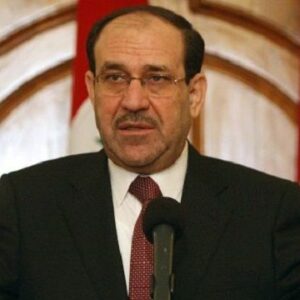Nouri Al-Maliki is an Iraqi politician who served as the country’s Prime Minister from 2006 until 2014. His grandfather had revolted against the British conquerors, and he was born into a family with a history of political involvement. During his university years, he joined the Islamic Dawa Party and quickly progressed through the ranks to become a key figure in the organization. However, the party was at odds with the ruling Baath Party, which was led by Saddam Hussein, and Al-Maliki was forced to quit Iraq in 1979 as a result of their differences. He spent the following 24 years in Syria and Iran, forming a network of political connections in the process. He returned to Iraq when Saddam Hussein’s tyranny was deposed by US-led troops, and after a few years, he was elected Prime Minister of the nation. His stint as Prime Minister of Iraq came at a critical juncture in the country’s history, and he was successful in brokering a brief cease-fire between multiple warring groups. He refused to seek re-election to a third term as Prime Minister.
Childhood and Adolescence
On June 20, 1950, in Hindiya, Iraq, Nouri Kamal Mohammed Hasan al-Maliki was born to Kamil Mohammed Hasan al-Maliki and his wife. Although little is known about his family, his grandfather, Mohammed Hassan Abul Mahasin, was a rebel who opposed the British occupation of Iraq. His ancestors were from the Al-Ali clan.
He received his education in Hindiya, yet the name of the school he attended is unclear. He then went on to Baghdad’s Usal al-Din College, where he graduated in 1973. Around twenty years later, he received his postgraduate degree in Arabic literature from Baghdad University. He became a member of the Islamic Dawa Party during his stay at university. He worked in the education department after finishing his schooling in the city of Al Hillah in central Iraq.
Career of Nouri al-Maliki
He had been a member of the Islamic Dawa Party, which advocated for the Shias in the nation, since his undergraduate days and had swiftly risen to become one of the party’s most powerful members. The Islamic Dawa Party and Saddam Hussein’s Baath Party had a long-running feud in the 1970s.
He escaped Iraq on July 16, 1979, after it was found that he was a prominent member of the proscribed Islamic Dawa Party. He first travelled to Syria, then relocated to Tehran, Iran, two years later, where he stayed for the following eight years. He then relocated to Damascus. During his time in Syria, he continued the work of the Islamic Dawa Party and gained supporters in Hezbollah and Iran in his fight to depose Saddam Hussein.
After Saddam Hussein was expelled from Iraq in 2003, he returned to the nation. He was named deputy leader of the Iraqi Interim Government’s Supreme National Debaathification Commission. Following an election in January 2005, he was elected to the transitional national parliament, and in October of that year, he assisted in the writing of the new Iraqi constitution.
In 2006, he emerged as one of the front-runners for the position of Prime Minister, and with the support of the US ambassador, the commander of the Quds Force, and a compromise between Shia and Kurdish leaders, he was elected Prime Minister of Iraq.
He brought in measures to unite the various groups in Iraqi politics during his first tenure as Prime Minister, and he also signed Saddam Hussein’s death warrant. He was also instrumental in putting down a revolt in Basra by dispatching the Iraqi army to deal with the issue. During that time, however, his most important accomplishment was striking an agreement with the US on the US soldiers’ withdrawal from Iraq by 2009.
On December 22, 2010, he began his second tenure as Prime Minister, however it was a difficult time for him because there were multiple incidents of instability in Iraq. Bomb explosions purportedly carried by by Vice President Tariq al-Hasemi heightened Sunni-Kurdish tensions. Al Maliki did not quit despite the Iraqi president’s appointment of someone else as Prime Minister. He ultimately resigned on August 14, 2014, following rising calls from domestic and international authorities for his removal. He was then promoted to vice president of Iraq.
Major Projects of Nouri al-Maliki
After taking over a country in chaos, his most essential task as Prime Minister of Iraq was to negotiate peace amongst the country’s various warring political and ethnic groupings. It was one of his most important legacies, despite the fact that it was short-lived.
Personal History and Legacy
He married Faleeha Khalil, yet the year and date of their wedding are uncertain. Ahmed is the couple’s son, and they have four daughters.
Estimated Net Worth
Nouri is one of the wealthiest World Leaders and one of the most loved. Nouri Al-net maliki’s worth is estimated to be $1.5 million, according to Wikipedia, Forbes, and Business Insider.


